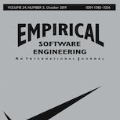A tenet of open source software development is to accept contributions from users-developers (typically after appropriate vetting). But should this also include interventions done as part of research on open source development? Following an incident in which buggy code was submitted to the Linux kernel to see whether it would be caught, we conduct a survey among open source developers and empirical software engineering researchers to see what behaviors they think are acceptable. This covers two main issues: the use of publicly accessible information, and conducting active experimentation. The survey had 224 respondents. The results indicate that open-source developers are largely open to research, provided it is done transparently. In other words, many would agree to experiments on open-source projects if the subjects were notified and provided informed consent, and in special cases also if only the project leaders agree. While researchers generally hold similar opinions, they sometimes fail to appreciate certain nuances that are important to developers. Examples include observing license restrictions on publishing open-source code and safeguarding the code. Conversely, researchers seem to be more concerned than developers about privacy issues. Based on these results, it is recommended that open source repositories and projects address use for research in their access guidelines, and that researchers take care to ask permission also when not formally required to do so. We note too that the open source community wants to be heard, so professional societies and IRBs should consult with them when formulating ethics codes.
翻译:暂无翻译




